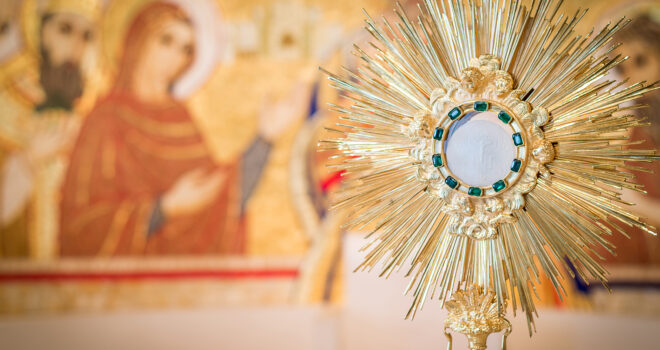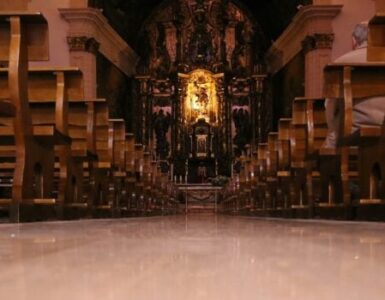I think an excellent opportunity has arisen for the kind of “exchange” that can bear much fruit for the Church and for Catholic theology. Dr. Larry Feingold has written an outstanding response to my article that I truly believe would be of interest to readers. Occasions for productive theological dialogue are too few, and I think we have a great one in front of us.
Response to Daniel B Gallagher
What I meant to say with my COVID example, mentioned in Daniel Gallagher’s column, is that Jesus’ human Body, which is a substantial part of His humanity, is not substantially present in my basement, but is substantially present in every tabernacle containing a validly consecrated host. When you love someone, the substantial presence of their bodies is not unimportant! Normally when we speak of a properly human mode of presence, we mean the presence of our bodies as well as our souls. Certainly, Jesus is present to us, wherever we are, in various ways other than through the substantial presence of His human Body and Blood, as Paul VI explains in his Encyclical Mysterium Fidei (1965), §§35–38, and as the Catechism of the Catholic Church summarizes in §1373. But that substantial presence of Jesus’ entire humanity is the glory of His Eucharistic presence, “by which,” as Paul VI says, “Christ, God and man, makes himself wholly and entirely present” (§39, quoted in CCC, §1374).
With regard to the Council of Chalcedon, quoted by the author, it should be noted that it says that “one and the same Christ, Lord, and only-begotten Son, is to be acknowledged in two natures without confusion, change, division, or separation (italics mine).” The natures are neither confused nor separated, which means that the “character proper to each of the two natures was preserved as they came together in one Person,” as the conciliar definition goes on to state. It is a property of divine nature to be omnipresent and infinite, but this is not a property of human bodies, even when glorified. The substantial presence of Jesus’ glorified Body, mysteriously whole and entire in the Blessed Sacrament, but not in my basement, is the foundation for Eucharistic adoration and gratitude.
Let me add that I am grateful for and edified by the apology in the author’s Addendum.
Larry Feingold
Professor of Theology, Kenrick-Glennon Seminary












